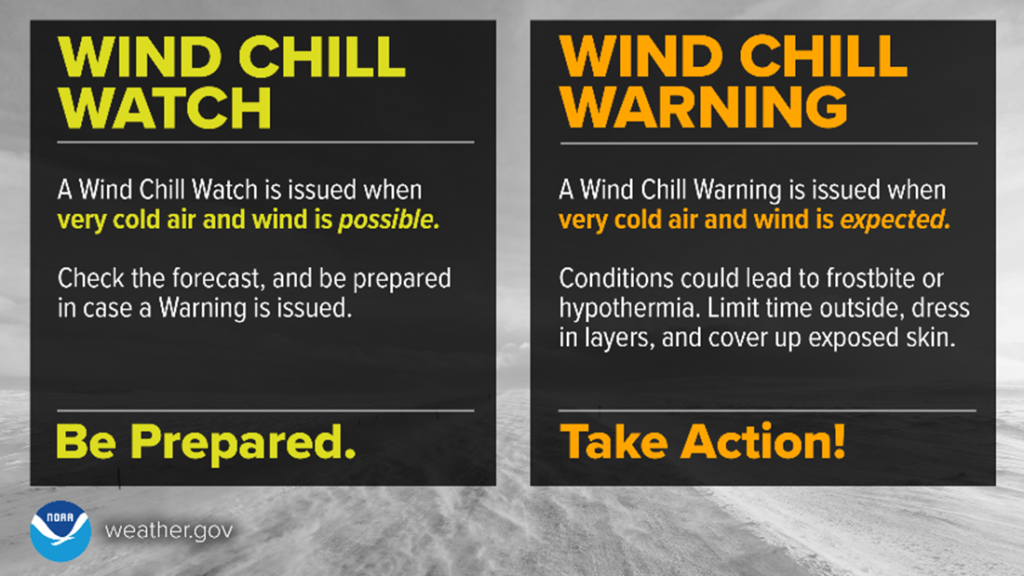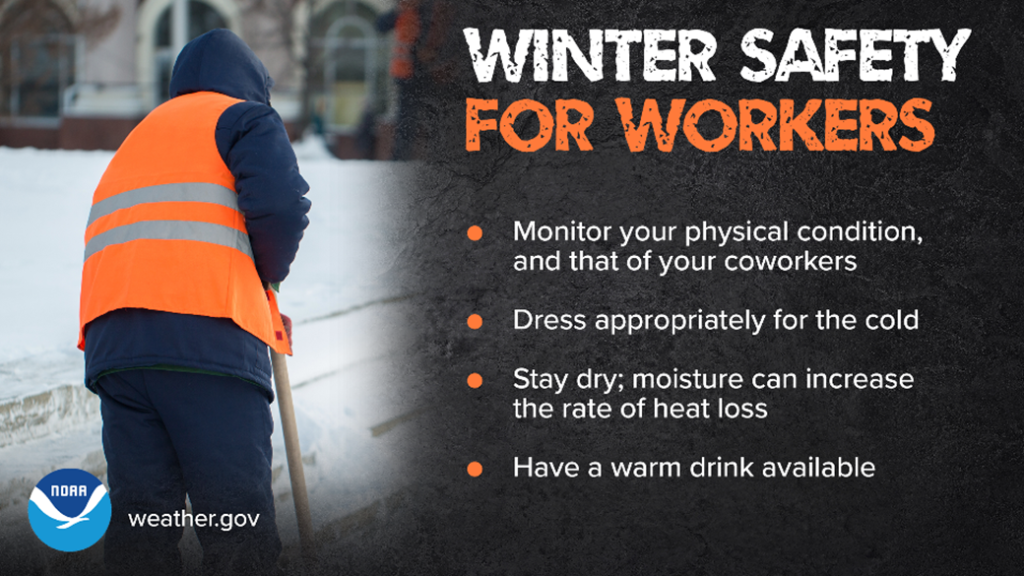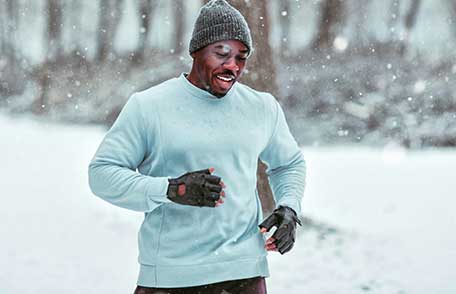It’s Winter Safety Awareness Month
Winter storms and extreme winter weather can bring cold temperatures, power failures, loss of communication services, and icy roads and sidewalks – and preparing for them before they’re at your doorstep is the best way to keep yourself and your loved ones safe. The Environmental Health and Safety Department would like to share the following tips from the CDC for staying safe at home and at work this winter:
Plan and Prepare
- Create a communication and disaster plan for your family: Involve your entire family in planning and practicing how to stay healthy, informed, calm, and connected during an emergency. Talk to your children so that they know you are prepared to keep them safe.
- Have an evacuation plan.
- Prepare a “go bag” for emergencies that includes:
- First aid kit;
- Flashlight;
- Battery-powered or crank radio (and extra batteries for it);
- Charging cables for cell phones;
- Bottled water (one gallon of water per person in plastic bottles or jugs);
- Ready-to-eat foods that do not need a refrigerator;
- Personal care items such as toothbrush, toothpaste, and skin wipes;
- Medications and medication list;
- Important documents (such as insurance cards, immunization records, or other health information) in a waterproof bag; and
- A listing of important phone numbers: physician, pediatrician, pharmacist, counselor, and veterinarian.
During an Emergency
- Stay calm and reassure your children. Talk to them about what is happening (keep it simple).
- Check on neighbors, charge cell phones, find flashlights (check batteries), and follow the guidance of local officials and the weather forecast via the internet, radio, or television.

When Working in Cold Weather
Exposure to cold temperatures may cause serious or life-threatening health problems. Personnel who work outdoors during the winter months should dress warmly; know how to recognize and prevent cold-related health problems; and know what to do if a cold-stress health emergency arises.
- Dress in layers, cover skin, and limit time outside.
- Shoveling show can be a health risk, so remember to take breaks and take it easy.
- Stay off icy roads.
- Prepare your car for winter: keep your gas tank near full; always have an extra blanket and flashlight in case you get stuck on the road.

Learn About Frostbite and Hypothermia
Frostbite causes loss of feeling and color around the face, fingers, and toes.
- Signs: Numbness; white or grayish-yellow skin; firm or waxy skin.
- Actions: Go to a warm room. Soak in warm water. Use body heat to warm. Do not massage or use a heating pad.
Hypothermia is an unusually low body temperature. A temperature below 95 degrees is an emergency.
- Signs: Shivering, exhaustion, confusion, fumbling hands, memory loss, slurred speech, or drowsiness.
- Actions: Go to a warm room. Warm the center of the body first: chest, neck, head, and groin. Keep dry and wrapped up in warm blankets, including the head and neck.
For additional information on working safely in winter weather, please refer to the SafeNYCHA advisories on Connect.
If you have questions about this or any environmental health and safety matter, please email ehs@nycha.nyc.gov. Residents, employees, and any member of the public can submit environmental health and safety concerns at on.nyc.gov/submit-concern.
For more information on winter safety preparedness, please visit:







